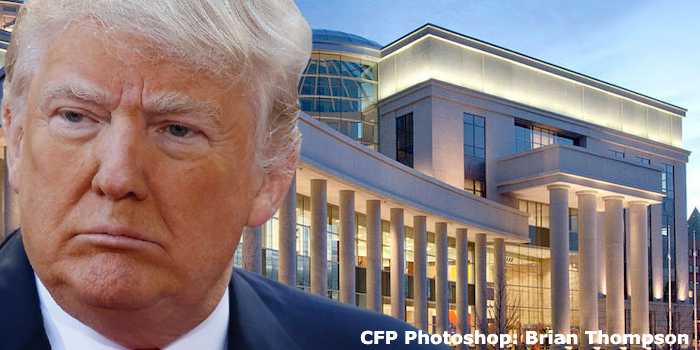By David Robb ——Bio and Archives--December 20, 2023
American Politics, News | CFP Comments | Reader Friendly | Subscribe | Email Us

It appears that Colorado is growing a new, more potent weed of late. There seems little other explanation for a recent ruling of the Colorado Supreme Court. They just ruled that Donald Trump could be kept off the Colorado 2024 ballot because the US Constitution's 14th Amendment prohibits insurrectionists from holding government office.
There were only a few issues that had to be surmounted to arrive at that ruling, but those formed no significant barrier to the creative minds of the Court. The first of these issues was that Donald Trump has never been convicted of insurrection. Yes, he has been accused in the media and in Court of such, but as of yet, there has been no court willing or able to rule on such accusations.
We all know, though, that accusation is tantamount to conviction, especially if it is some accusation against Trump. Why would someone be accused of something if it wasn't true? As the saying goes, perception is reality.
The Colorado Court was able to address this minor point by presuming that he would be convicted—or would be if justice were to prevail, so they were justified in proceeding as if such ruling had been made. In effect, they found Trump guilty of insurrection without having to go through such bothersome processes as a trial, presentation of evidence, or any of those other irksome rituals required by the 6th and 7th Amendments. Obviously in an issue of such importance, those provisions don't apply.
Having dispensed with the question of was Trump actually guilty of insurrection, it was only a small matter to declare that Trump should be kept off the ballot. If he were on the ballot and actually got elected, clearly he could not take office. Were he to do so, it would lead to a constitutional crisis that must be avoided at all costs. Therefore it was essential to prevent him from ever being elected, and the way to do that was to keep him off the ballot in the first place.
To my way of thinking, such twisted logic could only be performed by someone smoking some serious dope. As I look at the matter, the Colorado Supreme Court convicted someone of insurrection without a trial, without a chance to confront his accusers, without any presentation of arguments, and without a jury of peers.
Having ordained a conviction, they proceeded to engage in election interference by denying a substantial portion of the state's population the opportunity to vote for a candidate of their choice. Seems a rather clear case of voter suppression to me.
While creative interpretation of law is to be encouraged to some degree, it would appear that the Colorado court did take things a bit far. The fact that these rulings originated in the state's Supreme Court does not speak well for justice in Colorado.
How does one go about bringing Federal charges against a State judge? Perhaps it is time to find out. Besides violation of election law, might there be conspiracy, defrauding the public, racketeering, misuse of public office, and lots of other opportunities for creative minds?
Judges sometimes see themselves as dispensers of law, and therefore above the law. That seems to be the case in Colorado. Might it be time to revive that great tradition of tarring and feathering corrupt officials and riding them out of town on rails? In any case, a good dose of reality seems in order.
View Comments
David Robb is a practicing scientist and CTO of a small firm developing new security technologies for detection of drugs and other contraband. Dave has published extensively in TheBlueStateConservative, and occasionally in American Thinker.